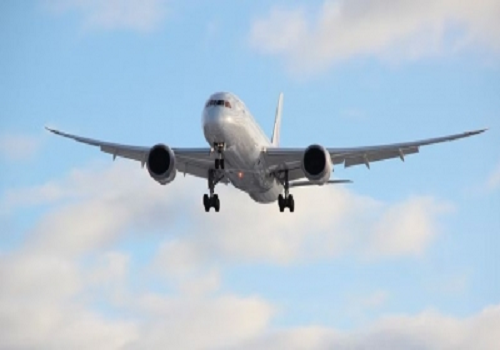Indian aviation sector to grow 8-13% in FY24:ICRA

Credit rating agency ICRA predicts the domestic air passenger traffic to grow at 8-13 per cent in FY24 to touch 150-155 million.
The agency maintained a Stable outlook on the Indian aviation industry amidst the continued recovery in domestic and international air passenger
traffic in FY2024, and improved pricing power of the carriers.
According to ICRA, it estimates growth in domestic air passenger traffic in FY2024 at 8-13 per cent, thus reaching 150-155 million, surpassing the
pre-COVID levels of 141.2 million in FY2020.
During the five month period in FY24, domestic air passenger traffic stood at 63.2 million, witnessing a YoY growth of 20% from 52.6 million in five
month FY23, seven per cent higher than the pre-COVID levels of 58.9 million (5M FY2020), said ICRA.
Further, the international passenger traffic for Indian carriers surpassed the pre-COVID levels in FY23, although it trailed the peak levels of 25.9
million in FY19. It is expected to cross this level in the current fiscal, with an estimated 25-27 million passengers, ICRA said.
According to the rating agency, the industry witnessed better pricing power, as reflected in improved yields and thus the revenue per available
seat kilometre – cost per available seat kilometre (RASK-CASK) spread of the airlines.
The pricing power is expected to continue with a YoY decline in aviation turbine fuel (ATF) prices since April 2023 (notwithstanding the recent
uptick) and relatively stable foreign exchange rates, ICRA said.
Given the fast-paced recovery of air passenger traffic in FY23 and continuation of the same in the current fiscal, coupled with improved pricing power, the RASK-CASK spread of some of the Indian airlines turned positive since Q3 FY23. The industry is estimated to report a significantly lower net loss of about Rs. 30-50 billion in FY2024 compared to an estimated about Rs. 170-175 billion in FY2023, said Suprio Banerjee, Vice President & Sector Head-Corporate Ratings.
According to Banerjee, the capacity addition for the industry in FY23 was limited to around six per cent of the FY22 fleet of the airlines at about
700 aircraft.
There are large aircraft purchase orders announced by various players in the industry. As per the indicative numbers, the total aircraft deliveries
pending is close to about 1,500, which is more than double the current fleet in operation.
However, a large part of these is towards replacement of old aircraft with new fuel-efficient ones and the capacity addition will be gradual.
“Aircraft manufacturers are facing supply-chain challenges, resulting in the grounding of aircraft by some airlines. This, in turn, impacts the
overall capacities for airlines, and thus their cash flow generation, given the high fixed-cost nature of the business,” Banerjee added.
While some airlines have adequate liquidity and/or financial support from a strong parent, supporting their credit profile, the credit metrics and
liquidity profile of the others will remain stressed over the near term, notwithstanding some improvement relative to the last few years.
















